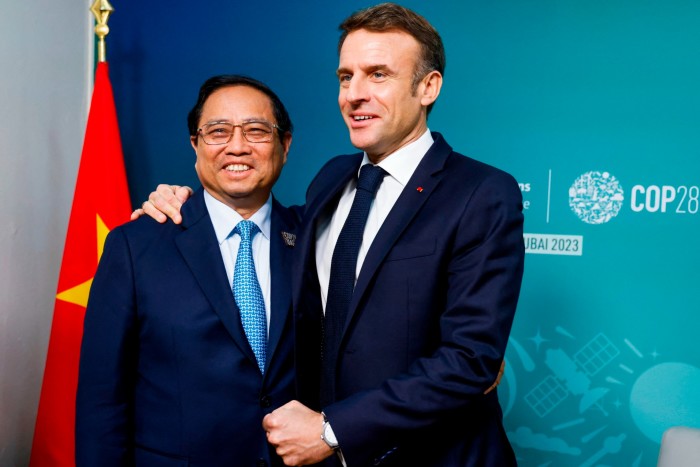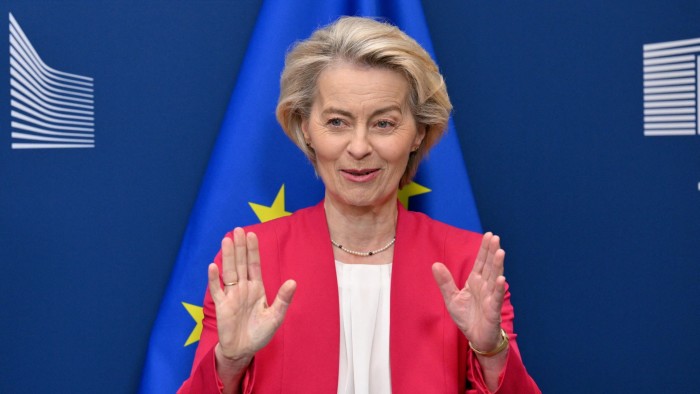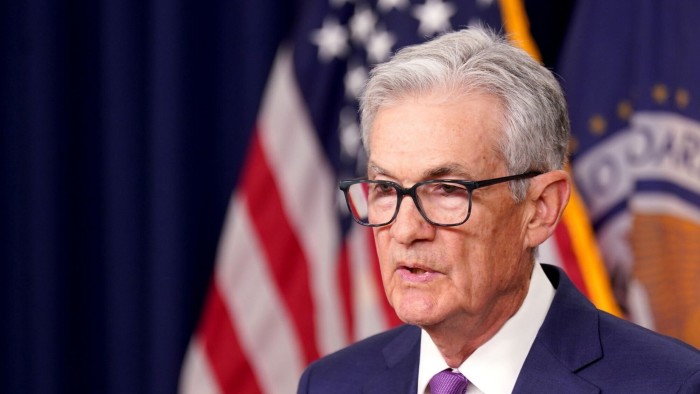Trump tariffs risk large euro-area ‘demand shock’, central banker warns

Unlock the White House Watch newsletter for free
Your guide to what the 2024 US election means for Washington and the world
US President Donald Trump’s sweeping tariffs risk triggering a large “negative demand shock” in the Eurozone, a senior European Central Bank policymaker said as the ECB weighs an interest rate decision later this month.
In an interview with the Financial Times, Greece’s central bank governor Yannis Stournaras warned that the looming global trade war was likely to weigh heavily on Europe’s economic growth. “A notable adverse impact on growth could lead to activity being much weaker than expected, dragging inflation below our targets,” he said.
One of the longest-sitting members on the ECB’s governing council, Stournaras warned that the euro area was facing the shock at a point in time when the outlook for growth was already “modest” and inflation was on track to meet the ECB’s medium-term target of 2 per cent. The ECB is set to make its next interest rate decision on April 17.
Trump announced last week that Washington will impose a 20 per cent tariff on most EU imports.
The US is the largest single export market for EU-made goods, accounting for close to 21 per cent of the bloc’s total exports in 2024. While duties are likely to dent demand in the US, economists are also concerned that even higher tariffs against China could lead to a rerouting of Chinese-made goods to Europe which could lower inflation even more.
Ahead of Trump’s tariff announcement last week, the ECB had signalled a potential pause in interest cuts as it adopted more hawkish language after cutting borrowing costs for the sixth time since mid-2024 to 2.5 per cent last month. ECB President Christine Lagarde said in March that inflation in the euro area could rise by half a percentage point in a trade war owing to “EU retaliatory measures and a weaker euro exchange rate”.
Stournaras took issue with that view, arguing that “tariffs are definitely a deflationary measure” for the euro area. He stressed that the US’s protectionist steps were “worse than expected” and had created an “unprecedented” degree of “global policy uncertainty” that weighs on economic activity.
Analysts and investors said Trump’s tariff announcements have increased the probability of another quarter-point rate cut later this month. JPMorgan, which previously expected the ECB to hold rates steady at 2.5 per cent in April, on Friday changed its view and now predicts another quarter-point cut, to be followed by two more in June and September. Goldman Sachs economists on Friday also said that a cut in April was “now very likely”.
Asked if the situation was grave enough to justify a 50 basis points rate cut, Stournaras declined to comment.
While it was difficult to “precisely assess the impact of tariffs”, the negative impact on euro area growth “could be anything between 0.5 and 1 percentage points”, he warned. The ECB in March lowered its 2025 growth forecast for the euro area to just 0.9 per cent.






